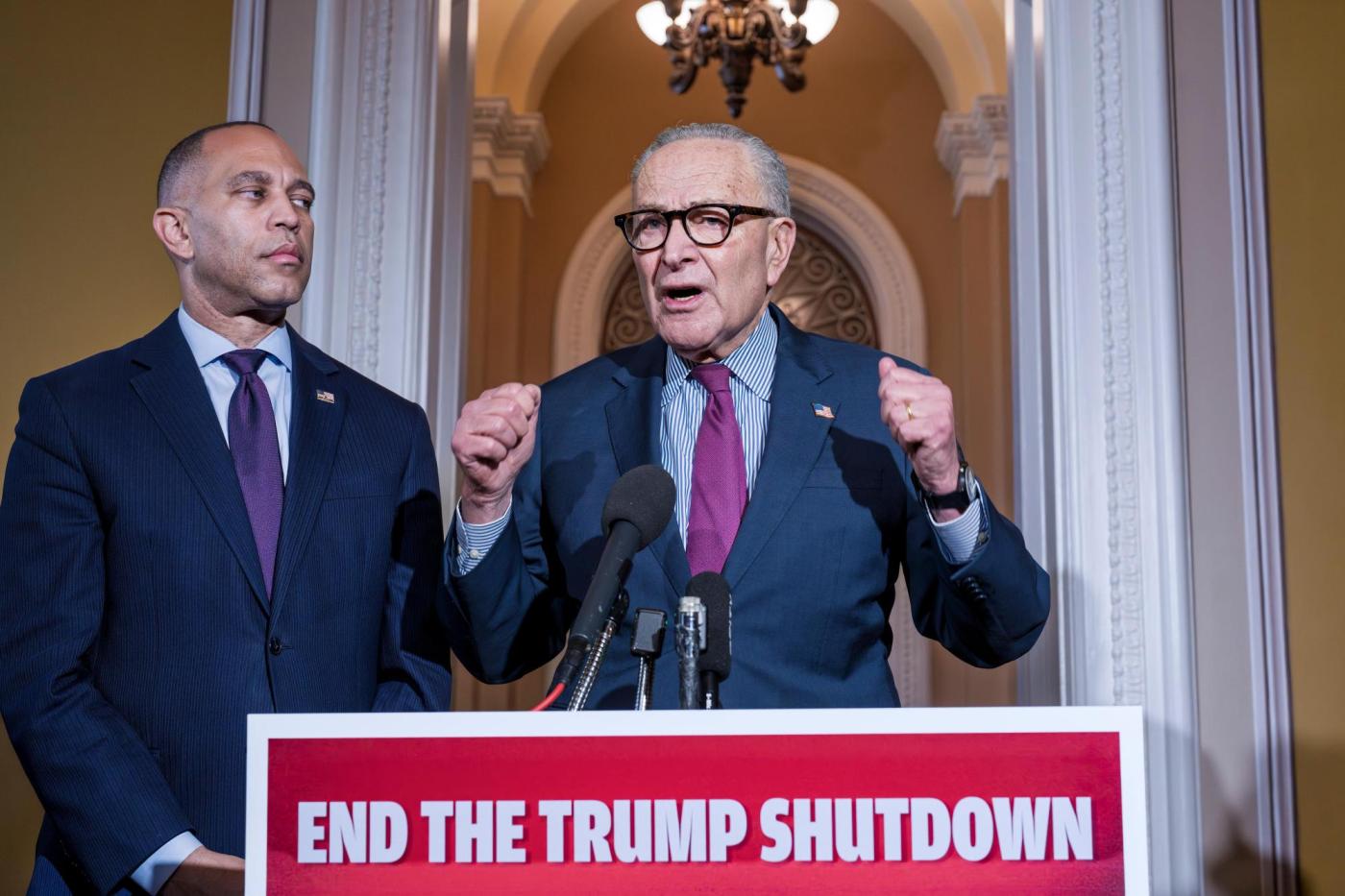Top Stories
Democrats’ Shutdown Strategy Sparks Filibuster Debate NOW

UPDATE: In a surprising turn of events, the Democratic Party’s current government shutdown is seen as a strategic move to dismantle the filibuster, a rule long upheld in the Senate. As the shutdown enters its critical phase, many Americans are questioning the Democrats’ true intentions behind their demands.
Just announced: Democrats appear to be leveraging this shutdown as a tactical “fork” in the road, forcing Republicans into a corner. If Republicans concede to the Democrats’ stipulations, they risk granting a significant policy victory. Conversely, should negotiations break down entirely, Senate Republicans may ultimately opt to abolish the filibuster, paving the way for the Democrats’ broader agenda.
This strategy comes amidst a backdrop of failed attempts to eliminate the filibuster during President Biden’s administration, blocked by two Democratic senators who have since departed. The filibuster, a safeguard for minority rights in the Senate, has faced erosion in recent years, first under the leadership of Harry Reid and later by Mitch McConnell, as both parties sought to push through their respective judicial nominees.
Democrats’ refusal to engage in the typical legislative process raises crucial questions. Could they be hoping to either win Republican support or provoke them into scrapping the filibuster entirely? This tactic, designed to achieve popular support among their base, seems poised to reshape the Senate’s operational framework.
As the shutdown unfolds, the stakes are incredibly high. If the filibuster is eliminated, Democrats could push through transformative changes with a simple majority, potentially granting statehood to Washington D.C. and Puerto Rico—resulting in an additional four Democratic seats in the Senate. Other radical changes could include packing the Supreme Court, eliminating voter ID laws nationwide, and implementing permanent vote-by-mail procedures.
A former National Committeeman to the RNC from Illinois, Richard Porter, emphasizes the urgency of the situation, stating that “Democrats have effectively gone on strike against democracy.” The implications are profound, with the potential to shift the political landscape for years to come.
What happens next? Analysts suggest that Republicans must respond decisively. Former President Donald Trump could take the lead by exposing the Democrats’ strategy, urging the public to recognize their maneuvering as an attack on democratic processes. Additionally, the absence of government funding could be leveraged to push for necessary reforms.
The political climate remains charged as both parties brace for a showdown. The urgency of this situation cannot be overstated; the outcome may define the future of American governance. With the stakes at an all-time high, citizens are encouraged to stay informed and engaged as events continue to develop.
-

 Science2 weeks ago
Science2 weeks agoResearchers Challenge 200-Year-Old Physics Principle with Atomic Engines
-

 Politics2 weeks ago
Politics2 weeks agoNHP Foundation Secures Land for 158 Affordable Apartments in Denver
-

 World7 days ago
World7 days agoBoeing’s Aircraft Production: Assessing Numbers and Challenges
-

 Lifestyle5 days ago
Lifestyle5 days agoTrump’s Push to Censor National Parks Faces Growing Backlash
-

 Lifestyle6 days ago
Lifestyle6 days agoRed Bluff High School’s Elli Nolan Named Rotary Student of the Month
-

 Entertainment6 days ago
Entertainment6 days agoSyracuse Stage Delivers Lively Adaptation of ‘The 39 Steps’
-

 Health2 weeks ago
Health2 weeks agoNeuroscientist Advocates for Flag Football Until Age 14
-

 Lifestyle2 weeks ago
Lifestyle2 weeks agoLongtime Friends Face Heartbreak After Loss and Isolation
-

 Science6 days ago
Science6 days agoAI Misidentifies Doritos Bag as Gun, Triggers Police Response
-

 Politics5 days ago
Politics5 days agoNFL Confirms Star-Studded Halftime Show for Super Bowl LVIII
-

 World2 weeks ago
World2 weeks agoGlobal Military Spending: Air Forces Ranked by Budget and Capability
-

 Health2 weeks ago
Health2 weeks agoFDA Launches Fast-Track Review for Nine Innovative Therapies









